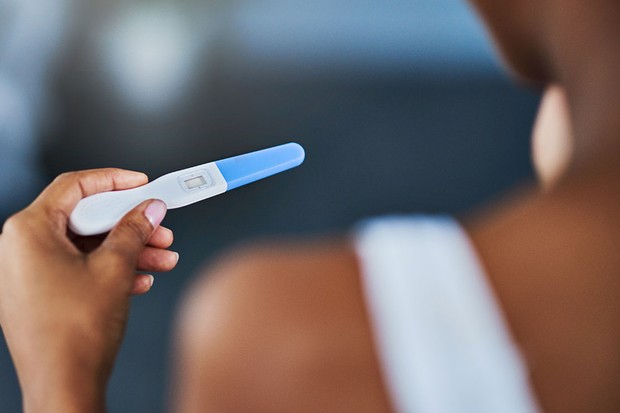When you have irregular menstrual cycles, it might be tough to tell if you are pregnant or if it is merely those incredibly unexpected and haphazard cycles when you skip a period. This post will provide you with some early pregnancy detection strategies and DNA clinics McKinney Tx to help you distinguish paternity.
I’ll also go over some items to keep in mind while taking pregnancy tests if you have erratic cycles. You’ll discover solutions to questions like how many days to confirm pregnancy in the case of irregular menstruation.
Let us try to comprehend a regular menstrual cycle before going into depth about irregular periods and the obstacles involved with DNA test kit McKinney Tx in women with irregular cycles.
The menstrual cycle includes:
The day of ovulation marks the start of a regular menstrual cycle, separated into two sections. The days during which you have menstrual flow will make up the first half of the menstrual cycle, which will last until the day of ovulation.
The uterine lining begins secreting thin fluid after ovulation in readiness to deposit an embryo if fertilization occurs. As a result, the period surrounding ovulation is thought to be the most fertile of a woman’s menstrual cycle. However, pregnancy can occur at any time. If fertilization of the egg produced throughout the process does not happen within a few days following ovulation, progesterone levels begin to decline.
However, the second phase is relatively stable and lasts around 13-15 days from ovulation. Ovulation occurs around the 14th day of a woman with a 28-day cycle and the 16th day of the process in a woman with a 30-day cycle.
As we can see, there are various reasons why you would wish to pretend to have a fever. Though you can never Body temperature in real life, you can permanently affect fever symptoms to fool people into thinking you have one.
What do irregular periods entail?
Irregular periods occur when the interval between your periods varies, usually by a few days each time. The menstrual cycle lasts around 28 days on average. Each process might last anywhere from 21 to 35 days in women with irregular menstrual periods. A woman with irregular cycles may experience early or late periods each time, and she may be unclear when her next period arrives.
Period irregularities have several causes.
Sometimes a woman’s irregular menstrual periods are natural and rely on her hormone cycles. A woman’s menstrual cycle may be disrupted due to the following factors:
- Puberty – For the first one or two years after reaching menarche, a girl’s first menstrual flow, her periods may be erratic.
- Periods may become irregular around menopause, usually between 45 and 55.
- Physical stress, such as intense exercise, might disrupt hormones, causing irregular periods.
- Emotional stress might cause irregular periods as well.
- Hormonal contraceptives like oral contraceptives and intrauterine devices can change your menstrual cycle.
How can I get pregnant if my periods are irregular?
Anovulation is the most common cause of problems becoming pregnant in women who have irregular periods. Menstruation occurs when the progesterone is secreted from the ovary after ovulation is removed. If the ovum is not fertilized by sperm and pregnancy is not achieved, progesterone is released. Failure to ovulate also indicates that the events that lead to menstruation do not occur.
Hormone testing:
If you’ve been keeping a menstrual calendar to forecast the most fertile or safe phase of your cycle, it might be a daunting chore if your cycles are particularly erratic.
It’s possible that you won’t be able to forecast the timing of your next ovulation or the start of your menstruation.
If you have irregular menstrual periods, how can you test for pregnancy?
If a home urine pregnancy test comes out negative, you can repeat the test a few days or a week. If you cannot wait, you may choose to get a pregnancy detection blood test performed at your doctor’s office to identify pregnancy sooner. However, the results of the blood tests may take a few days.

When it comes to irregular periods, how many days to confirm pregnancy?
It might be anything between 42 and 49 days from the start of your previous period, with your most extended cycle being 35 days. A woman should be tested approximately a week or two after her most extended cycle to confirm pregnancy for irregular cycles. On the other hand, pregnancy can occur as early as the seventh day of a concise cycle of roughly 21 days and can be detected with DNA tests much earlier than a month after the last period.
A Paternity test while pregnant McKinney Tx can be performed late in pregnancy and can also assist the doctor in determining the child’s Paternity.

